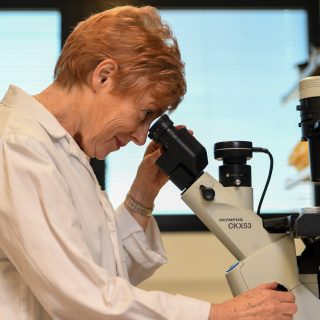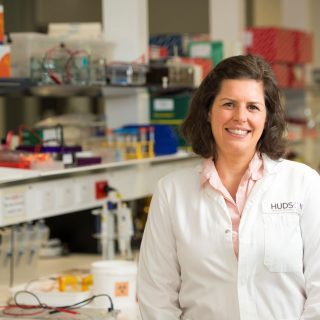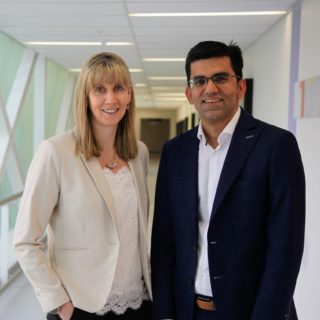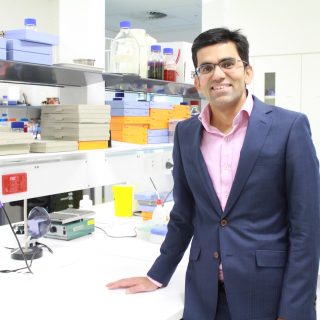Treatment type: Cell therapies
-
Crohn’s disease: research developments
Crohn’s is an inflammatory disease which affects the gastrointestinal tract. It is incurable and usually chronic with periods of flare ups lasting from anywhere from a few days to a several months.… Read more

-
Stem cell therapy advances lung disease treatment
A cutting-edge new treatment for a fatal lung disease is one step closer thanks to a discovery by Hudson Institute stem cell therapy researchers.… Read more

-
Pelvic organ prolapse treatment hurdle overcome
Pelvic organ prolapse (POP) can be a debilitating condition, predominantly caused by the impact of childbirth. It affects an estimated one in four women, and one in two women over 50.… Read more

-
Umbilical cord blood could improve brain injury in babies
New laboratory research shows multiple doses of umbilical cord blood (UCB), rather than a single treatment, could help improve brain injury in babies starved of oxygen during pregnancy or birth.… Read more

-
Stem cell therapies receive MRFF funding
Associate Professor Rebecca Lim has been awarded more than $470,000 from the Australian Government’s Medical Research Future Fund to pursue research into stem cell therapies for liver disease.… Read more

-
Boosting embryo implantation success
During infertility treatment, the failure of an embryo to implant in the uterus lining is still a major hurdle to a successful pregnancy for many women.… Read more

-
Fetal growth restriction treatment findings
Treatments given postnatally to babies who have experienced fetal growth restriction (FGR) during pregnancy need to be carefully considered, following new light shed on the topic by cell therapy research.… Read more

-
Cell therapies trial planned for COVID-19
More than 200,000 people have died from COVID-19 since January 2020. While Australia has been relatively spared from the onslaught of infections and deaths, our nation’s scientists need to be part of the global effort to address this pandemic.… Read more

-
Protecting growth-restricted babies from brain injury with stem cell therapy
Hudson Institute scientists have demonstrated for the first time that umbilical cord stem cells can protect preterm, growth-restricted babies from brain injury.… Read more

-
Stem cells help premature babies with lung disease
Hudson Institute and Monash University researchers have assessed the long-term outcomes of their world-first study that used placental stem cells in premature babies with severe bronchopulmonary dysplasia, a form of chronic lung disease.… Read more

